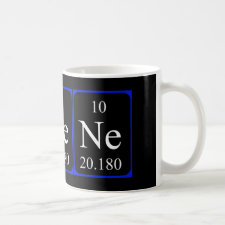Authors: Khulu S, Ncube S, Kgame T, Mavhunga E, Chimuka L
Article Title: Synthesis, characterization and application of a molecularly imprinted polymer as an adsorbent for solid-phase extraction of selected pharmaceuticals from water samples.
Publication date: 2021
Journal: Polymer Bulletin
DOI: 10.1007/s00289-021-03553-9
Abstract: Most pollutant compounds exist as mixtures in the environment. In this regard, one of the 12 principles of green analytical chemistry emphasizes the need for methods that allow for analysis of multiple compounds versus those that analyze a single analyte at a time. In this work, we present a molecularly imprinted polymer (MIP) synthesized for the selective and efficient extraction of selected pharmaceuticals belonging to five different classes, namely an antiretroviral (nevirapine), an antidepressant (venlafaxine), a muscle relaxant (methocarbamol), an anticonvulsant (carbamazepine) and a cardiac stimulant (etilefrine) from surface water samples. Cavity tuning experiments using the target pharmaceuticals as a single or multi-template were conducted and the venlafaxine-imprinted polymer was successfully selected for the study based on its high selectivity toward targeted pharmaceuticals. Batch adsorption and kinetic studies showed that adsorption of the selected pharmaceuticals onto the particles of the polymer followed a Freundlich adsorption isotherm as well as a pseudo-second-order adsorption model. This indicated heterogeneity of the binding surface energies on the MIP resulting in multiple interactions through chemisorption. An analytical method for quantification of the compounds using liquid chromatography-mass spectrometry (LC-MS) was successfully developed, with detection limits ranging from 0.03 to 0.31 ng mL-1 and quantification limits in the 0.12-3.81 ng mL-1 range. The imprinted polymer was then evaluated as a selective adsorption sorbent for solid-phase extraction (SPE) of the selected pharmaceuticals in dam water samples followed by LC-MS analysis, giving recoveries ranging from 43 to 69%
Author keywords: Molecularly imprinted polymer, Pharmaceuticals, Nevirapine, Carbamazepine, Venlafaxine



Join the Society for Molecular Imprinting

New items RSS feed
Sign-up for e-mail updates:
Choose between receiving an occasional newsletter or more frequent e-mail alerts.
Click here to go to the sign-up page.
Is your name elemental or peptidic? Enter your name and find out by clicking either of the buttons below!
Other products you may like:
 MIPdatabase
MIPdatabase









